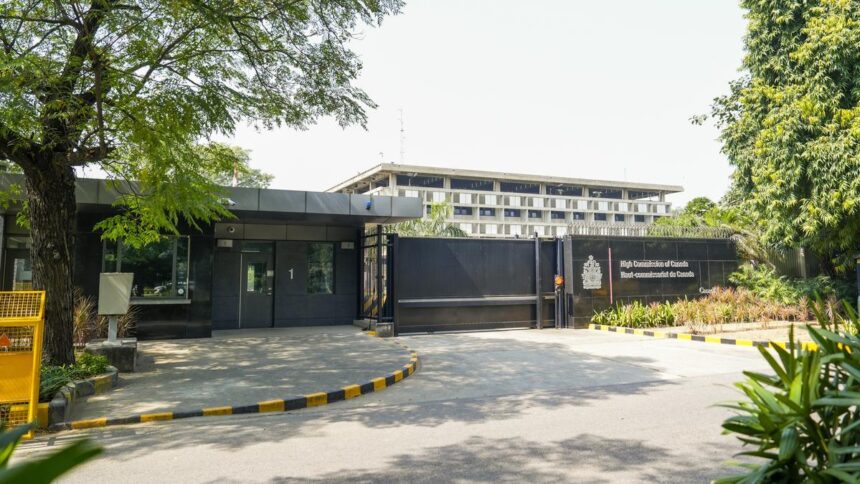In a significant diplomatic development, Canada accuses India of disturbing violence against pro-Khalistani groups, raising concerns about international relations and safety, claiming that Indian government agents are collaborating with the Lawrence Bishnoi gang to target pro-Khalistani elements within its borders. This allegation has sparked a fierce exchange between the two nations, highlighting the complexities of international relations amid ongoing concerns about violence and separatism.
Accusations Without Evidence
Just after India withdrew its diplomats from Canada, the Royal Canadian Mounted Police (RCMP) held a press conference asserting that Indian operatives are directly involved in “serious criminal activity” on Canadian soil. However, the Canadian government did not provide concrete evidence to back its claims. In Ottawa, the RCMP charged that “agents” of the Indian government were collaborating with the Bishnoi gang to target members of the pro-Khalistani movement.
The allegations emerged in the wake of an ongoing investigation into the murder of Hardeep Singh Nijjar, a Khalistani activist who was shot dead in Canada last year. The RCMP claimed that its findings suggest potential links between the Indian government and violent acts committed in Canada accuses, including Nijjar’s killing.
Diplomatic Fallout
Following these allegations, Canada accuses six Indian diplomats, asserting their involvement in the Nijjar murder investigation. In retaliation, India recalled its top envoy to Canada and expelled six Canadian diplomats( Canada accuses), marking a tit-for-tat response that further escalated tensions.
RCMP Assistant Commissioner Brigitte Gauvin indicated that members of the South Asian community, particularly pro-Khalistani individuals, are being targeted by Indian agents. The RCMP’s statement suggested that organized crime groups, specifically the Bishnoi gang, are being used as tools by the Indian government.
Trudeau’s Strong Stance
Canadian Prime Minister Justin Trudeau echoed the RCMP’s claims, asserting that Indian government agents pose a significant threat to public safety in Canada. He criticized India for not cooperating with ongoing investigations into Nijjar’s murder and stated that Canada possesses “clear and compelling evidence” of Indian involvement in various violent activities.
Despite Trudeau’s statements, the Indian government has dismissed the accusations as “absurd and baseless,” reiterating its stance that Canada accuses has failed to provide any supporting evidence for its claims.
A Lack of Evidence
Critics have pointed out that Canada’s allegations have not been substantiated with any tangible proof. Many have taken to social media to express skepticism regarding Trudeau’s assertions. Canadian journalist Daniel Bordman remarked that Trudeau’s government has failed to provide compelling evidence, emphasizing that the ongoing situation could potentially cost Canada billions in trade.
Justin Trudeau again fails to provide compelling evidence to the public after escalating the tensions with India. Diplomats have been expelled and we are still in the “trust me bro” phase.
This could end up costing Canada billions in trade. All to appease Jagmeet and the gang of…
— Daniel Bordman (@DanielBordmanOG) October 14, 2024Michael Kugelman, Director of the South Asia Institute at the Wilson Center, commented on the extraordinary nature of Canada’s public disclosure of these allegations, noting that the absence of evidence has been a recurring theme in India’s rejection of Ottawa’s claims.
International Ramifications
In an effort to rally international support, Canada has sought assistance from its “Five Eyes” intelligence partners, including the US, UK, Australia, and New Zealand, as well as G7 nations. Canada’s Foreign Minister Mélanie Joly indicated that sanctions against India are on the table as discussions continue regarding the alleged involvement of Indian agents in violent acts within Canada.
Trudeau’s statements underscored Canada accuses commitment to aligning its position on extrajudicial operations with international law, as he reiterated the need for India’s cooperation in resolving these serious allegations.

Indian Government’s Response
In response to the allegations, India has consistently maintained that it does not engage in extrajudicial killings or violent actions on foreign soil. The Indian government has criticized Canada for what it perceives as politically motivated accusations, emphasizing that it has not received any credible evidence to support Canada’s claims.
Amid these tensions, a recent report from the Washington Post claimed that Canadian authorities had shared intercepted conversations involving Indian diplomats that allegedly implicated Home Minister Amit Shah and a senior Research and Analysis Wing (RAW) official in authorizing intelligence-gathering operations targeting pro-Khalistani figures in Canada accuses. However, the Indian government has yet to respond to these specific allegations.
The Path Forward
As diplomatic relations between Canada and India continue to fray, both nations face pressure to navigate this complex situation carefully. The RCMP’s claims and Canada’s response have prompted significant scrutiny and debate within both countries, raising questions about the future of their bilateral relations.
While Canada pushes for cooperation and evidence-sharing regarding these serious accusations, the Indian government remains firm in its denial of involvement in any acts of violence abroad. The situation remains fluid, with both sides potentially seeking avenues for dialogue amid the growing tensions.
The unfolding diplomatic crisis between Canada and India serves as a stark reminder of the intricacies of international relations, particularly when accusations of violence and state-sponsored actions are involved. As both nations grapple with these serious allegations, the international community will be watching closely to see how the situation develops and what implications it may have for global diplomacy.
Read More: NCP Leader Baba Siddique Shot Dead in Mumbai: A Tragic Incident






